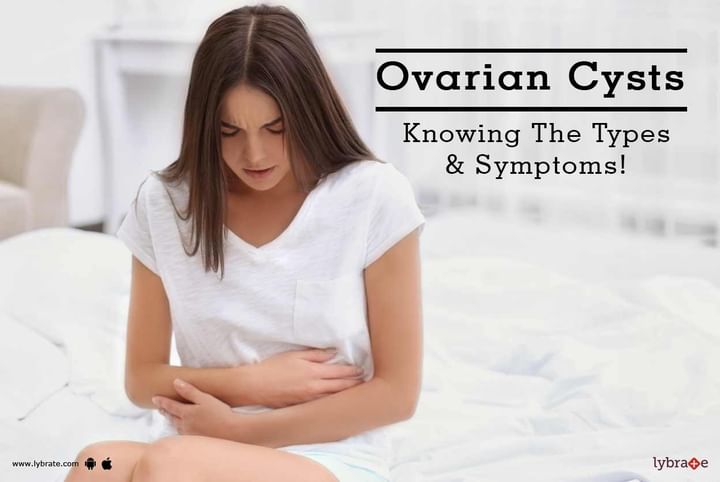Ovarian Cysts - Knowing The Types & Symptoms!
What is the ovary and what are ovarian cysts?
Ovarian cysts are fluid-filled sacs or pockets within or on the surface of an ovary. Women have two ovaries - each about the size and shape of an almond - located on each side of the uterus. Eggs (ova) develop and mature in the ovaries and are released in monthly cycles during your childbearing years.
Many women have ovarian cysts at some time during their lives. Most ovarian cysts present little or no discomfort and are harmless. The majority of ovarian cysts disappear without treatment within a few months.
However, ovarian cysts - especially those that have ruptured - sometimes produce serious symptoms. The best ways to protect your health are to know the symptoms that may signal a more significant problem, and to schedule regular pelvic examinations.
What causes ovarian cysts?
Most ovarian cysts start during the normal function of your menstrual cycle. These are known as functional cysts. Other types of cysts are much less common.
Functional cysts
Your ovaries normally grow cyst-like structures called follicles each month. Follicles produce the hormones estrogen and progesterone and release an egg when you ovulate. Sometimes a normal monthly follicle just keeps growing. When that happens, it becomes known as a functional cyst. There are two types of functional cysts:
- Follicular cyst. Around the midpoint of your menstrual cycle, an egg bursts out of its follicle and begins its journey down the fallopian tube in search of sperm and fertilization. A follicular cyst begins when something goes wrong and the follicle doesn't rupture or release its egg. Instead it grows and turns into a cyst.
- Corpus luteum cyst. When a follicle does release its egg, the ruptured follicle begins producing large quantities of estrogen and progesterone in preparation for conception. This changed follicle is now called the corpus luteum. Sometimes, however, the escape opening of the egg seals off and fluid accumulates inside the follicle, causing the corpus luteum to expand into a cyst.
The fertility drug clomiphene (Clomid, Serophene), which is used to induce ovulation, increases the risk of a corpus luteum cyst developing after ovulation. These cysts don't prevent or threaten a resulting pregnancy.
Functional cysts are usually harmless, rarely cause pain, and often disappear on their own within two or three menstrual cycles.
Other cysts
Some types of cysts are not related to the normal function of your menstrual cycle. These cysts include:
- Dermoid cysts. These cysts may contain tissue such as hair, skin or teeth because they form from cells that produce human eggs. They are rarely cancerous.
- Cystadenomas. These cysts develop from ovarian tissue and may be filled with a watery liquid or a mucous material.
- Endometriomas. These cysts develop as a result of endometriosis, a condition in which uterine endometrial cells grow outside your uterus. Some of that tissue may attach to your ovary and form a growth.
Dermoid cysts and cystadenomas can become large, causing the ovary to move out of its usual position in the pelvis. This increases the chance of painful twisting of your ovary, called ovarian torsion.
SYMPTOMS:
- Menstrual irregularities
- Pelvic pain - a constant or intermittent dull ache that may radiate to your lower back and thighs
- Pelvic pain shortly before your period begins or just before it ends
- Pelvic pain during intercourse (dyspareunia)
- Pain during bowel movements or pressure on your bowels
- Nausea, vomiting or breast tenderness similar to that experienced during pregnancy
- Fullness or heaviness in your abdomen
Pressure on your rectum or bladder that causes a need to urinate more frequently or difficulty emptying your bladder completely.



+1.svg)
